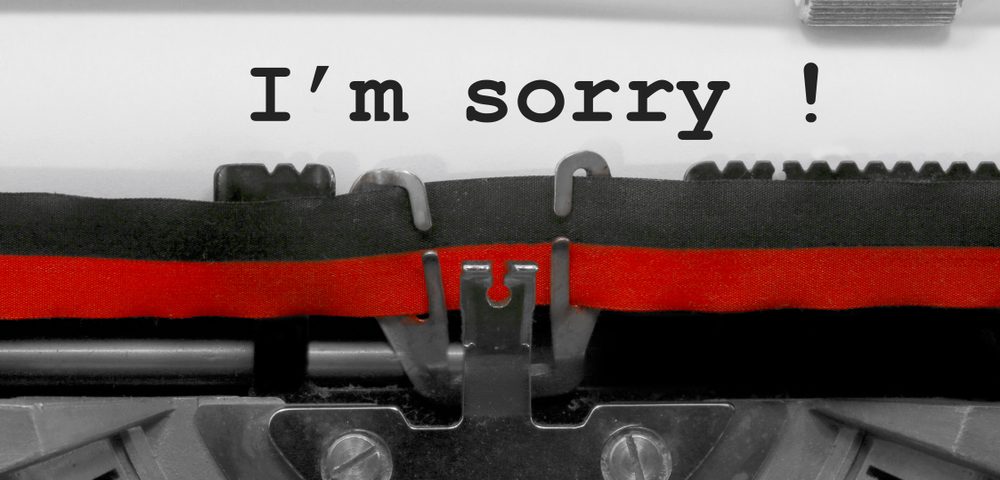
Mindfulness and Mental Health
December 4, 2020
Door to Addiction
December 9, 2020The Power of ‘I’m Sorry’
“Apologize to your little sister.”
“No! I had it first!”
“Sweetheart, it’s her favorite toy and I saw you grab from her—now please go say you’re sorry.”
“No!”
“OK, then. Go to your room until you are ready to apologize.”
Parents mean well. Engaging children to formulate even a reluctant apology can be challenging. In many instances, when the child finally caves and says the magic words “I’m sorry,” the problem is solved. More parents prioritize mindful living and positive parenting, but have we underestimated the importance of guiding children toward heartfelt apologies?
Teaching our children to apologize is different than teaching them to mean it. Learning to express genuine apologies as young children can lead to successful conflict resolution skills and healthier relationships in adulthood.
Apologies are not all created equal. An apology can be defensive (I’m sorry, but…). An opportunistic apology can be motivated by avoiding some type of harm (I’m sorry. Now can I have my phone back?) A sincere and remorseful apology acknowledges wrongdoing and owns responsibility.
Parents can ask questions to develop more intuitively remorseful apologies in children. Focused questions can help you understand your child’s perspective, allow the child to take responsibility, and help them acknowledge any pain they caused, which all lead toward a sincere apology.
“Why is your sister crying?”
“Did you take her favorite toy?”
“Did you mean for her to be sad?”
“How would you feel if your sister took your favorite toy?”
“When we hurt someone, saying ‘I’m sorry’ can help them feel better, and help you feel better too.”
“If you don’t apologize, here is what could happen…”
Like a professional mediator, leading people to better understand their interests, strategic questioning can help shine a light on children’s underlying thoughts and feelings. This caring approach helps develop the empathy and compassion needed to make a sincere apology and models good communication. communicate.
A simple way to help a child make genuine apology is to have them fill in these blanks:
I’m sorry for…
This was wrong because…
Next time, I will…
Now comes the really hard part: Be patient. As parents, we may struggle with unsettled feelings when our intervention doesn’t immediately result in a sincere apology. Attempt to hold back from forcing an apology. Empathy is not built in a day. The life lessons that children internalize from making empathetic apologies are, no doubt, worth the time and effort.
Your guidance will reinforce the idea that boundaries need to be respected. Children learn that apologizing shows courage, not weakness. Imagine if we understood, as young children, that making a real apology feels good? Would we be more capable of apologizing to our loved ones later in life? Take it from a divorce mediator—it would be life-changing.
Apologizing is unavoidable on the path to repairing a damaged relationship. Help your children understand that apologizing helps the other person feel better and helps them feel better about themselves. Ultimately, learning the incredible power of “I’m sorry” will change how they behave and how they relate to the world.
By // Michael Aurit, JD, MDR and Karen Aurit, LAMFT
MASK the Parenting Magazine a quarterly publication providing solutions for Today’s Families.
The parenting manual offering solutions to the modern-day challenges families face. From Pre-K
through College stay up to date on the modern day issues families face.
Are you up to date on the issues your child is facing?
MASK Mothers Awareness on School-age Kids offers parenting solutions for today’s families. MASK tackles important topics – from drugs and alcohol to bullying and Internet safety -and gives students, parents and the community the knowledge and tools to manage these potential challenges.
Subscribe today! https://www.tools4teaching.com/product/mask-the-magazine/
Download and share the MASKmatters app now! Made for children, parents, teachers and in Spanish.
Have solutions at your fingertips
Available free on apple and google play links below
Apple https://apps.apple.com/us/app/maskmatters/id1482305692
Google Play
https://play.google.com/store/apps/details?id=com.maskmatters.maskmattersapp&hl=en_US&gl=US




